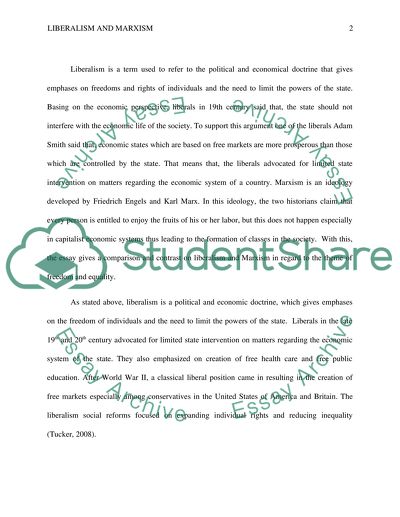Cite this document
(“Compare and contrast Liberalism and Marxism, in regard to the theme of Essay”, n.d.)
Retrieved de https://studentshare.org/history/1493892-compare-and-contrast-liberalism-and-marxism-in
Retrieved de https://studentshare.org/history/1493892-compare-and-contrast-liberalism-and-marxism-in
(Compare and Contrast Liberalism and Marxism, in Regard to the Theme of Essay)
https://studentshare.org/history/1493892-compare-and-contrast-liberalism-and-marxism-in.
https://studentshare.org/history/1493892-compare-and-contrast-liberalism-and-marxism-in.
“Compare and Contrast Liberalism and Marxism, in Regard to the Theme of Essay”, n.d. https://studentshare.org/history/1493892-compare-and-contrast-liberalism-and-marxism-in.


